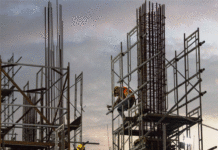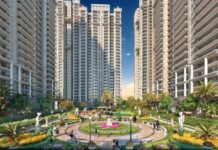New Delhi, May 20, 2019:
The Concept
Smart City is a new version of advanced Urban Agglomeration. By Smart cities, we are trying to recreate a better standard for our living and also to resolve the problems which we have created in the process of continuous human habitation.
Differing from state to state, nation to nation owing to the variation in the Demographics, Economic Structure, Technology and Political Environment, Smart cities could either be Greenfield (start afresh) or Brownfield (on existing ones) projects where challenges are different in both the cases.
The Brownfield project or the cities with existing infrastructure pose various socio-economic challenges and major problems related to urbanization like the migration from rural population to cities; growth of urban population resulting in decrease of living spaces, many environmental issues e.g. pollution (air, water, noise, radiation); manageability issues in consumption of natural resources; limitation in utility services (Electricity, Water supply, Gas etc); problems of civic amenities (roads, drainage, sanitation, sewerage, solid waste), including rising number of social problems like crime, suicide etc.
The Greenfield project or creating a futuristic Smart city from scratch will pose a different challenge of finding reason on why and how a migrant population could be accommodated by providing not just wonderfully done concretized infrastructure and some hi-tech amenities but also will require providing a meaningful option for “livelihood or earning” and by providing better conveniences for relocation.
What will be there in a Smart City? or What we will achieve through a Smart city?
It is all about HIGH EFFICIENCY & OPTIMIZATION of Urban Infrastructure & Services in a holistic approach. The goal is to achieve better “quality of life”, a higher rank in the HDI Human Development Index. Urban living in Smart cities should mean the most cost effective way for a citizen to avail all kinds of services at highest achievable performance. The entire city and its services shall be SYSTEM DRIVEN, PROCESS DRIVEN with minimal discretionary powers for decision. At the same time, the system should be able to eradicate the constraints (which we face today) by maximizing the desired factors (better living, better services) and minimizing undesired ones (crimes etc.).
For example Mumbai Health Authority will be able to get information in their IMS (Incident Management system), available with the command & control Centre of Mumbai Police, when a distress call is received from a Heart Patient under attack and the exact patient location will be determined on a GIS map automatically so that rapid aid /ambulance can attend him in less than 5-15 minutes.
How Smart cities shall be made?
The Smart Cities will cover the utilization of information and communication technology, as well as clean energy technologies, for the more efficient management of municipal operations or E-governance services {be it G2G (government to governments) or G2C (government to citizens)} .
The services of a smart city cover Integration in the areas of energy management (as Smart grid), water management (as conservation), urban mobility (as Intelligent Transportation), connected healthcare, Smart education, public safety & security etc., for example to name a few.
What are the building Blocks of a Smart city?
The Base Layer of a Smart city is indeed the Technology Platform. The CITY-COCKPIT could be enabled with a 4CI (Command, Control, Communications, Computers, Intelligence) centre which could eventually integrate City-Surveillance with POLICE, FIRE Dept, AMBULANCE etc. Also, it could be SCADA like system to take care of the Integration between Utility Smartgrid(s) of Energy, Water, Gas and Sewerage with other Municipal Functions. Loads of technology be it M2M sensors, RFID, Could computing, Power line communication, Optical Fibre, Smart metering, Wireless, Mobile Devices, Wearable’s, advanced storage/backup/recovery solution and Advanced Power Solutions etc. all will have a role to play in building the technology plinth of a Smart city.
On top of the Technology Layer, there will be the Logical layer which may include connectivity, service continuity, Data Virtualization, Big Data analytics, Cyber Security, Demand Side Management, Governance (Risk & Compliance), Disaster Recovery, Privacy & Identity, etc.
The Logical Layer will connect the physical systems and actual service delivery points like Smart building, Connected Healthcare, Smart grid, Smart metering, Intelligent Traffic management, Emergency Services, Public Hotspots, Public Safety /Security, home automation, robotics, assistive technology etc.
It is to remember that technologies should have common taxonomies, methods, protocols and standards so that they could be integrated easily.
Approaches towards Smart City:-
There could be various approaches and philosophies towards developing a Smart city. But indeed it could be Best to design a Smart city keeping in mind the convenience and need of the Elderly citizen, ease for the differently abled (like Outdoor spaces and buildings, Transportation, Housing; Civic Participation & Employment; Social Participation; Respect & Social Inclusion, Communication & Information, Community Support & Health Services). The city design should not only take care of the exuberance of a CEO but also be ADAPTIVE in providing the basic needs of a migrant worker, poor & destitute.
To conclude, it is very important to plan a Smart city with a Resilience Strategy. Any Smart city should have the power or ability to return to the original form or Return to normalcy ASAP after being affected by a disaster (Natural be it flood, earthquake or Man-Made Gas leak etc). It would be highly desirable to have our Smart cities designed and planned future proof by studying in depth the demographics, the vulnerability factors in details so that it could inherit resilience for overcoming the scourge of climatic changes (like sea level rise or glacier melt, or could burst) or could be health epidemic like (ebola virus or bird flu, etc.) or even the economic slowdown (alternate livelihood like the Decline of Detroit).
Smart Cities Mission (SCM) – the action squad
The present government on 2015, unveiled the Smart Cities Mission (SCM), one of its marquee initiatives aimed at upgrading 100 cities.
The Union government agreed to give each of the cities Rs 100 crore every year for five years, with an equal contribution coming from the state government and the urban local body combined.
In January 2016, 20 cities were announced under the Smart Cities Mission, followed by 13 cities in May 2016, 27 cities in September 2016, 30 cities in June 2017, and 9 cities in January 2018. With the selection of Shillong, the total proposed investment in the finally selected 100 cities under the Smart Cities Mission would be around Rs 2,05,018 crore.
By 2019, the government had approved 5,151 projects worth about 2,000bn rupees (about $29bn) under the Smart Cities Mission. SCM Report says 715 of the projects have now been completed and another 2,304 are in the process of execution.
Smart Cities Mission indeed is a success today, and it can be responsibly said that India is making a genuine progress in redefining its urban landscape and albeit gradually, but efficiently.
Corporate Comm India(CCI Newswire)




















